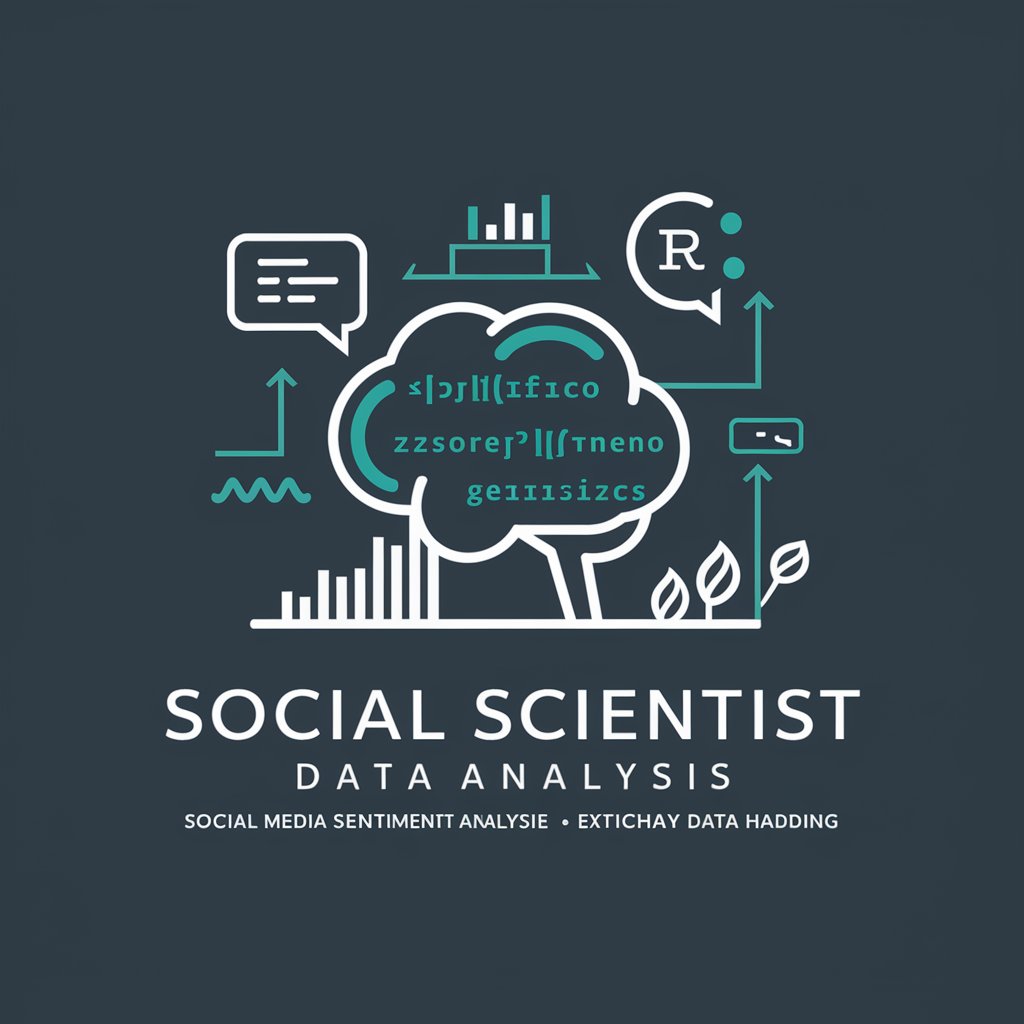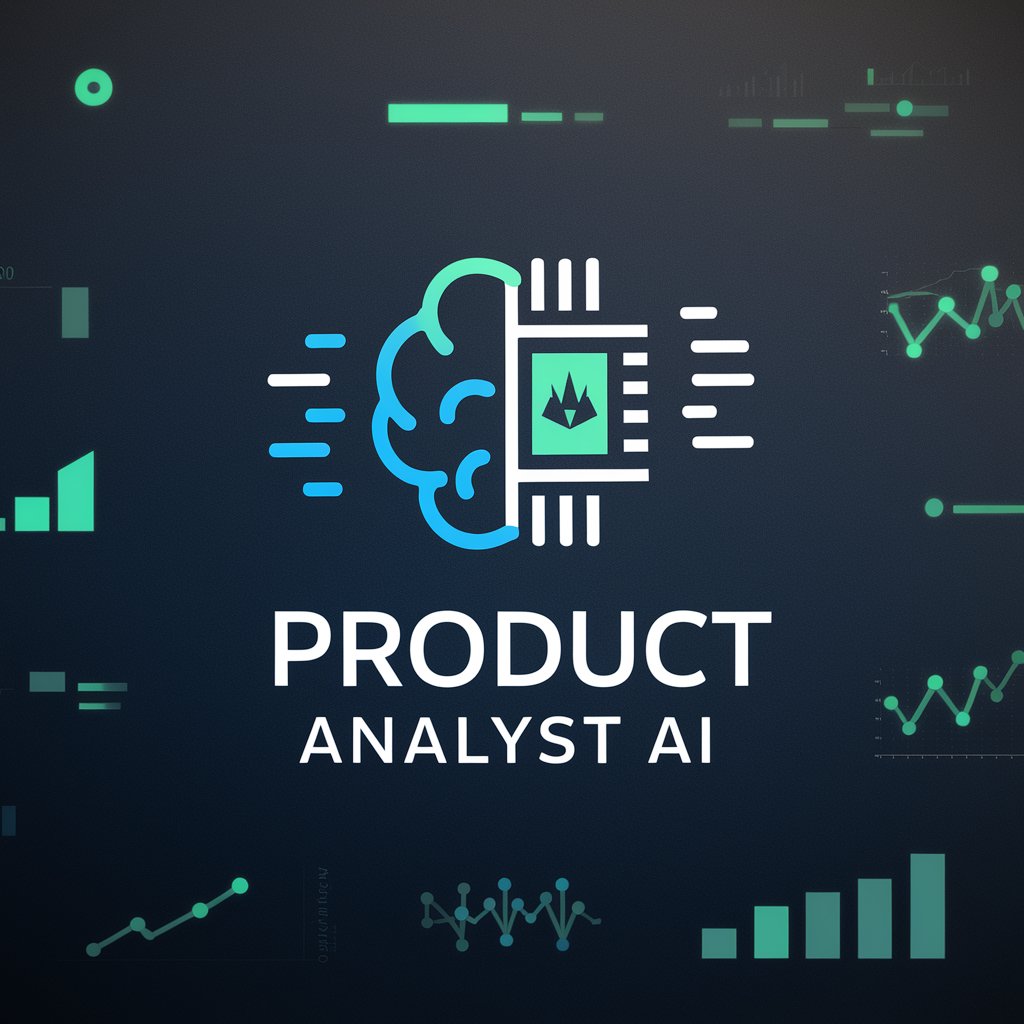Revolutionize Social Insights with R Analytics - Sentiment Analysis Tool, R-Powered

Welcome to data-driven social insights with R analytics.
Empower insights with AI-driven R analytics.
How can I preprocess social media data for sentiment analysis using R?
What are the best R libraries for text mining and sentiment analysis?
Can you guide me through creating a sentiment analysis model in R?
What ethical considerations should I keep in mind when analyzing social media data?
Get Embed Code
Overview of Revolutionize Social Insights with R Analytics
Revolutionize Social Insights with R Analytics is designed as a specialized tool for social scientists and data analysts, focusing on sentiment analysis of social media data using the R programming language. It facilitates the collection, preprocessing, and analysis of data from various social media platforms. The core of its functionality is rooted in leveraging R libraries such as 'tidytext', 'tm', and 'ggplot2' to clean, analyze, and visualize data. This GPT model offers a methodical approach to understanding public sentiment, trends, and patterns through textual data derived from social media, helping users derive actionable insights from complex datasets. For instance, a typical application scenario involves analyzing tweets to gauge public reaction to a major event, using text mining to extract sentiments and ggplot2 to visualize the sentiment trends over time. Powered by ChatGPT-4o。

Core Functions of Revolutionize Social Insights with R Analytics
Data Collection
Example
Extracting tweets using the rtweet package.
Scenario
Gathering real-time data on public opinion during a political debate to analyze changes in sentiment before, during, and after the event.
Data Preprocessing
Example
Cleaning and tokenizing text data using tm and tidytext.
Scenario
Preprocessing a dataset of Facebook comments to remove noise and standardize text for accurate sentiment analysis.
Sentiment Analysis
Example
Utilizing the sentiment analysis capabilities of the syuzhet package to assign sentiment scores to text data.
Scenario
Analyzing customer feedback on social media to determine overall sentiment towards a new product launch, helping marketers adjust strategies.
Time Series Analysis
Example
Creating time series plots of sentiment data using ggplot2.
Scenario
Tracking sentiment trends over time on Twitter regarding a social issue, aiding policymakers in understanding public opinion dynamics.
Data Visualization
Example
Visualizing data analysis results with ggplot2 for insightful and attractive presentations.
Scenario
Presenting a visual report of sentiment distribution across different regions based on Instagram posts to highlight geographical variations in public opinion.
Target User Groups for Revolutionize Social Insights with R Analytics
Social Scientists
Researchers in sociology, psychology, or political science can utilize this GPT to analyze social media texts and understand societal trends, public opinions, or reactions to events, assisting in academic or applied research.
Data Analysts
Professionals in data analytics working in corporate or governmental sectors can use this GPT to extract and interpret social media sentiment, which helps in making data-driven decisions and strategy formulations.
Marketing Professionals
Marketers can leverage this GPT to gauge consumer sentiment and trends from social media data, aiding in brand management, campaign evaluation, and market research.
Policy Makers
Officials and policy advisors can analyze public sentiment on various policies or during elections to better understand the public's needs and reactions, guiding policy adjustments and communication strategies.

Guidelines for Using Revolutionize Social Insights with R Analytics
1
Visit yeschat.ai to access a free trial instantly, no sign-up or ChatGPT Plus required.
2
Familiarize yourself with basic R programming and install necessary libraries such as 'tidytext', 'tm', and 'ggplot2'.
3
Gather and import your social media data sets into R for analysis. Ensure data complies with privacy and ethical guidelines.
4
Utilize the provided R scripts to clean, preprocess, and analyze sentiment in your social media data.
5
Explore advanced features like user demographics analysis, time series visualization, and sentiment score calibration for deeper insights.
Try other advanced and practical GPTs
Screenplay Adapter
Bring stories to screen, effortlessly.

PatentComply GPT
Safeguard Innovations, Power AI Analysis

ผู้ค้นหาข่าว K-pop ที่ชื่อค่ะบบ
Your AI-powered K-pop news hub

Tutor personale di francese
Master French with AI-Powered Tutoring

UPSC GPT - Talcott Parsons
Decoding Society with Parsons' Theories

GPT Chat en Español
AI-powered Spanish assistant for every task
Product Analyst AI
Empowering Decisions with AI Insights

Asistente Latex
Streamlining LaTeX document creation with AI

Emoji Screen Quiz Master
Transform emojis into knowledge!

Australian Trip Planner - For Your Next Trip
Your AI-powered journey designer

Rev Poku
Empowering faith through AI

Mon Expert UDI
Decipher French Politics with AI

Frequently Asked Questions about Revolutionize Social Insights with R Analytics
What types of social media data can I analyze with this tool?
You can analyze a wide range of data from platforms like Twitter, Facebook, and Reddit, focusing on user posts, comments, and reactions.
How does the sentiment analysis work?
The tool uses natural language processing techniques to categorize text into positive, negative, or neutral sentiments, often applying machine learning models for accuracy.
Can I customize the analysis scripts?
Yes, the R scripts are fully customizable, allowing you to adjust parameters, add new data sources, and refine analytics models to suit specific research needs.
Is there support for non-English data?
While the primary setup is for English, the tool can be adapted to work with other languages by incorporating appropriate text processing libraries and datasets.
What are the ethical considerations?
Ethical considerations include ensuring data privacy, obtaining necessary permissions, and transparent handling of data. Always comply with platform-specific and general data protection regulations.
